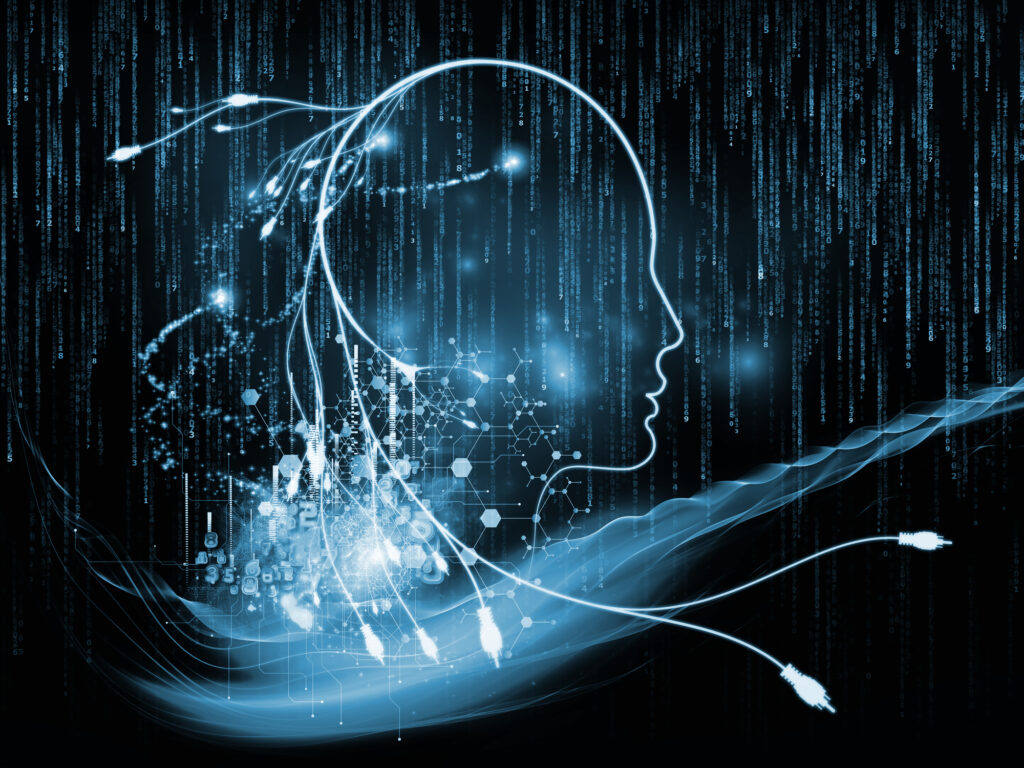Marketing is not a simple science. Marketers need to understand the latest technology, trends in commerce, and human psychology. What drives people and what are the broader social trends like? Marketers need to know how they can leverage technology at micro and macro scales while continually revising their performance. Marketing is pop psychology combined with consumer technology and a little fortune-telling.
The “third-platform technologies” of today, including data analytics, mobile technology, automation, and artificial intelligence (AI), have a profound impact on the way individuals and society interact. AI marketing is a great example of how machine learning and big data analytics, along with new software solutions are changing the world.

What is AI Marketing?
Artificial intelligence (AI) is a digital simulation that mimics the human mind. AI programs are limited in their intelligence-related capabilities, including reasoning, planning, and forecasting. When combined with the data collection, storage, and analysis capabilities of a CRM solution, artificial intelligence can produce incredible results.
AI marketing makes use of artificial intelligence to automate decisions, based on the data collected and analyzed. This allows marketers to conclude their customers and the market. These conclusions help marketers develop targeted digital marketing strategies.
A Short History of Marketing and AI
Digital marketing was still in its infancy during the mid-2000s. It included online content creation, A/B testing, email marketing, and e-commerce. The RSS reader was the newest gadget, podcasting was new, and people started counting clicks. Marketers believed they had mastered this digital thing.
Geoffrey Hinton of the University of Toronto has published a paper titled ” Learn Multiple Layers of Representation,“. This paper presented artificial intelligence as neural networks which could do more than classify sensory data such as speech or images. These new networks can be programmed to create associations based on information. Hinton explained that these neural networks were able to “learn”. It was the beginning of deep learning and another game-changer in marketing.

How is AI changing digital marketing?
Big data has helped marketers in the early stages by collecting the data they need to create a marketing strategy. AI marketing has the potential to impact many industries.
Centralized data
Marketing depends heavily on accurate and usable data. The most important information for marketing is often scattered across several data silos. AI-enhanced Marketing Automation Can help collect, organize, and analyze valuable marketing data, segment them, and then analyze the results. They can also improve and learn as they go. The data can be stored centrally in one place for use in marketing campaigns.
Better A/B Testing
Marketing is no different. It starts with a hypothesis and tests it rigorously. AI can run algorithms for campaigns, including web copy, design elements, call to action, and responsive design. This allows A/B testing to be much more thorough. This efficiency is already a big selling point, but because these algorithms are constantly learning, they become more intuitive, and their results more insightful, with each test.
Virtual Agents
It’s never been easier to blur the line between marketing and sales. This information is now available online under terms like “customer satisfaction” and “customer experience”. Since the majority of the buying journey occurs online, consumers want to be able to easily find the necessary information to make an informed purchase. Virtual assistants, such as chatbots, can help cognitive systems take advantage of this opportunity by providing 24/7 customer service. These agents can direct consumers in the direction that marketers want, use user data to inform advertising and sales efforts, and free customer service agents up for tasks with higher cost-benefit ratios.

Segmentation of clients and targeted lead generation
The explosion of big data in marketing was a great thing, until marketers started to panic. How could marketers qualify thousands of leads? Cognitive applications today cross-reference social media trends and web interactions with public records, to create a comprehensive profile of each lead. Some algorithms can tailor marketing messages for each lead. They can also predict which leads will convert and take action if the lead decides to choose a competitor.
AI Content Creation Written By
It’s much easier to see how AI can work with unstructured data than it is with words. But cognitive processes are not able to ignore any marketing role. AI can now be used to create marketing material and to interpret the reactions of users to that content. Some programs can create everything from personalized content to headlines and subject lines, to calls to action.